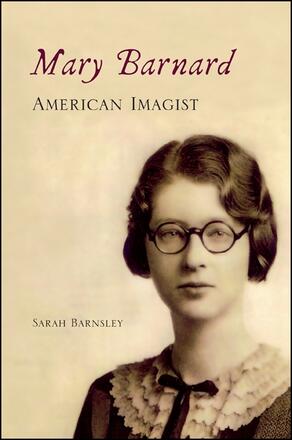
Mary Barnard, American Imagist
Alternative formats available from:
Uncovers a new chapter in the story of American modernist poetry.
Description
Perhaps best known for her outstanding translation of Sappho, poet Mary Barnard (1909–2001) has until recently received little attention for her own work. In this book, Sarah Barnsley examines Barnard's poetry and poetics in the light of her plentiful correspondence with Ezra Pound, William Carlos Williams, and others. Presenting Barnard as a "late Imagist," Barnsley links Barnard's search for a poetry grounded in native speech to efforts within American modernism for new forms in the American grain. Barnsley finds that where Pound and Williams began the campaign for a modern poetry liberated from the "heave" of the iambic pentameter, Barnard completed it through a "spare but musical" aesthetic derived from her studies of Greek metric and American speech rhythms, channeled through materials drawn direct from the American local. The first book on Barnard, and the first to draw on the Barnard archives at Yale's Beinecke Library, Mary Barnard, American Imagist unearths a fascinating and previously untold chapter of twentieth-century American poetry.
Sarah Barnsley is Lecturer in the Department of English and Comparative Literature at Goldsmiths, University of London.
Reviews
"Clearly structured and elegantly written, Mary Barnard, American Imagist far exceeds any act of routine scholarly 'recovery.' In addition to giving full recognition to Barnard's superb skills as a translator of Sappho, Sarah Barnsley also makes a convincing case for her original poetic output and for her contribution to the evolution of American free verse." — Peter Nicholls, author of Modernisms: A Literary Guide, Second Edition